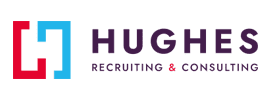What to Ask to Stand Out in Your Next Job Interview
So, you’ve applied for the job, got an interview, practiced answering common interview questions, and felt ready. But what about the end of the interview when the interviewer asks if you have any questions?
At the end of a job interview, it’s tempting to say, “No, I think we’ve covered everything,” especially if you’re overwhelmed or eager to wrap things up. But here’s the thing—asking insightful, smart questions shows that you’re genuinely interested in the role and the company and thinking ahead about how you can contribute. It also demonstrates that you’ve done your homework.
Zippia reports that 47% of candidates fail their interviews due to a lack of knowledge about the company they’re applying for.¹ This statistic highlights just how critical preparation is. When you invest time in understanding a company’s mission, core values, and position in the industry, you’ll be equipped to ask questions that show your interest and reflect your enthusiasm and proactive mindset.
Becoming the Ideal Candidate: Examples of Good End-Of-Interview Questions
Having questions prepared before an interview shows the interviewer you are interested in the position and helps you make the best decision if offered the job. Check out these questions to ask during an interview:
What does a typical day in this position look like?
A job interview is an excellent opportunity to gather as much information as possible. Finding out what a day will look like will help you determine if it fits you well. If you get the position, it will also help ease some of your nerves on your first day.
Can you describe the company culture?
Company culture is becoming increasingly crucial to workplaces and employees. Ask questions about culture so you feel more prepared when accepting a position. Fitting into a company’s culture makes it more likely for you to maintain long-term employment.
If you are working with a staffing company like Hughes Resources, this is also an excellent opportunity to ask about the relationship between your employer and your work site. Ask questions like where and how to turn in your timecard, call off if you are sick, and what to do if you are unhappy with work.
What are the most important qualities needed to succeed in this position?
Like the first interview question, you should ensure you are a good fit for the position before accepting. By asking what key qualities are needed, you can decide if you have the potential to be successful. If one of the qualities necessary is working in a fast-paced environment, and you know you like to take your time on projects, this position may not be an excellent long-term fit.
What milestones would you expect someone in this position to achieve within the first six months?
This interview question shows that you are results-oriented and eager to understand how you can contribute to the company’s success. It prompts the hiring manager to articulate the key performance indicators (KPIs) and the metrics by which your success will be measured.
Understanding this lets you align your skills and experiences with the company’s goals. Additionally, it gives insight into what the company prioritizes and how it measures success. It can be valuable information as you evaluate whether the role is an excellent fit for you.
What are the team’s biggest challenges right now?
Every role comes with challenges, and by asking this question, you demonstrate that you’re not afraid to face them. It also gives insight into what you might be up against if you get the job. If the interviewer shares some of the team’s current struggles, you can discuss how your experience could help address those issues. This not only shows that you’re a problem-solver but also that you’re already thinking about how to add value.
Can you provide an example of a recent successful project?
This question lets you gain insight into the type of work you’ll be involved in and the company’s project approach. It also allows you to hear about a specific instance where the team succeeded, which can indicate how they define and celebrate success. Moreover, it demonstrates your interest in the company’s work and eagerness to be a part of its success.
What opportunities are there for professional development?
If you’re thinking long-term, this is a must-ask question. It shows that you’re not just looking for a job but a place to grow and develop your career. Companies that invest in professional development often have more engaged and satisfied employees, so the answer to this question can give you a good idea of how much the company values its employees’ growth. Knowing that the company supports your development is a big plus, whether through formal training programs, mentorship, or opportunities for advancement.
What are the long-term goals for the department?
This question demonstrates that you’re thinking strategically about your role and how it fits into the bigger picture. By asking about the department’s long-term goals, you show interest in contributing to the company’s future success.
It also gives you a sense of where the company is headed and whether those goals align with your career aspirations. This can be a great way to position yourself as someone who’s not just thinking about the next six months but about how you can grow with the company in the long term.
Can you tell me more about the team I’ll be working with?
Understanding the dynamics of the team you’ll be joining is crucial for your success and satisfaction in the role. Asking about the team shows interest in how you’ll fit in and work with others. It can also give insight into the team’s strengths, challenges, and how they collaborate on projects. This information is valuable in helping you assess whether the team environment aligns with your work style.
What are the company’s plans for growth and expansion?
Asking about the company’s plans shows that you are thinking long-term and are interested in being part of the company’s journey. It also gives insight into the company’s stability and potential opportunities for growth within the organization. Understanding the company’s plans for growth can help you assess whether the company’s future aligns with your career goals and aspirations.
What does the training period look like for this position?
You want to be as informed as possible when starting a new job, so make sure you ask about any training requirements for new hires. Some work sites may require you to train on a different shift or at a different pay rate, so you want to make sure you can accommodate the training schedule before you accept the position.
What do you enjoy most about working here?
This more personal question allows you to connect with the interviewer differently. It gives insight into what the employees value about working at the company and what makes it a place worth staying. The interviewer’s response can give you a more authentic perspective on the company’s culture, values, and overall employee experience.
What should I expect regarding the next steps in the interview process?
Once the interview ends, ensure you know what to expect next. If they are going to follow up with you via phone, make sure they have the correct number on file for you and can easily reach you. If you need to continue to check in, make sure you have the correct number to check in at and put it in your phone’s contacts where it is easily accessible.
ELEVATE YOUR JOB SEARCH JOURNEY AND FIND YOUR NEXT IDEAL EMPLOYMENT WITH HUGHES RESOURCES
Whether you’re actively searching for a job or exploring options, Hughes Resources is here to help! With over 6,000 successful placements, we know what it takes to find the right fit for you. We specialize in manufacturing, clerical, and professional roles.
Feel free to visit our career page to explore current openings and see how they align with your goals. And if you need extra guidance, our expert recruiters are always ready to assist you. Please feel free to get in touch by filling out this short form.
References
1. Boskamp, Elsie. “40 Important Job Interview Statistics [2023]: How Many Interviews Before Job Offer” Zippia, 21 June 2023, www.zippia.com/advice/job-interview-statistics/.
























